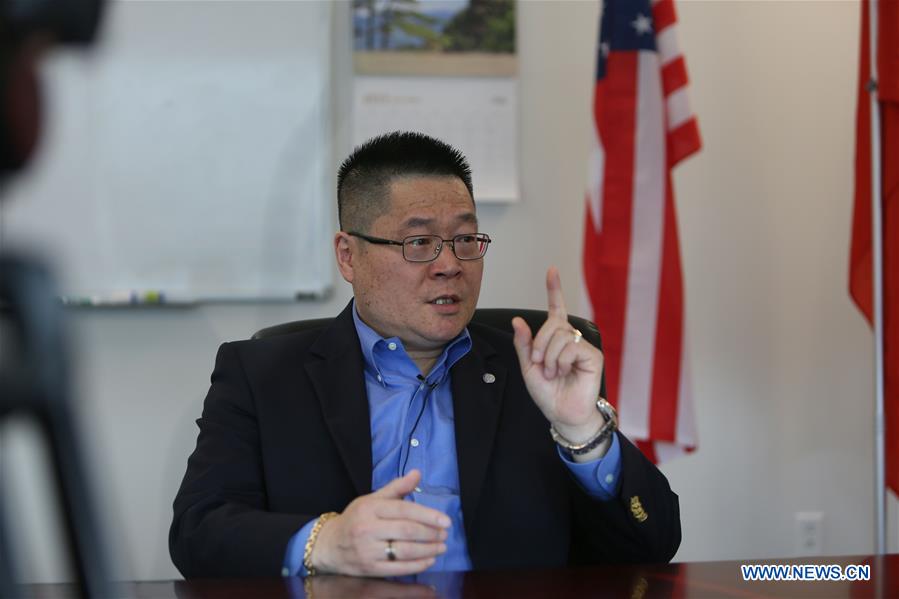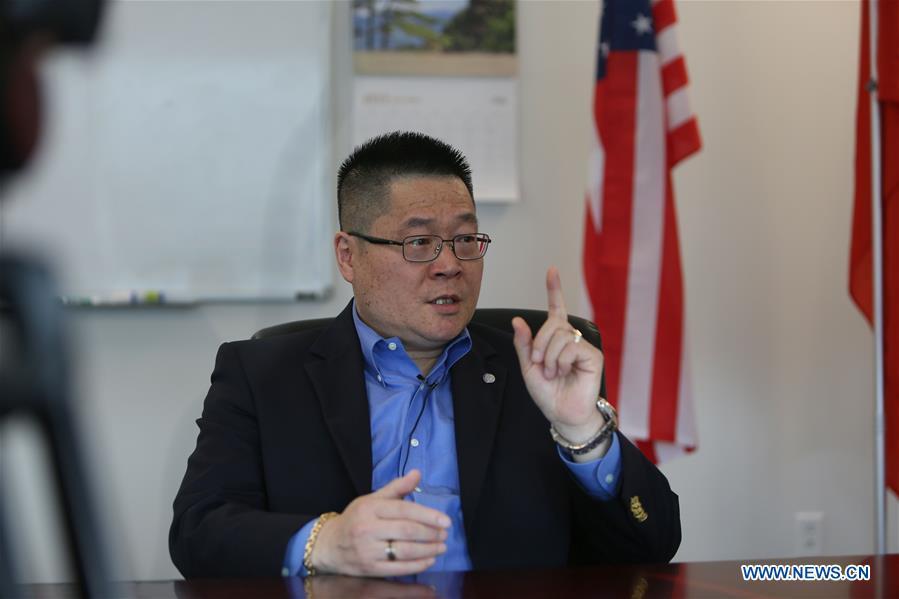
Jeff Liu, president and CEO of Fuyao Glass America, speaks in an interview with Xinhua in Moraine of Ohio state, the United States, on July 24, 2019. The market-oriented strategy adopted by China's leading automobile glass manufacturer has led it to take root in America and achieved win-win results with local communities, said Jeff Liu. (Xinhua/Zhang Fengguo)
By Xinhua writers Wang Wen and liu Guoyuan
MORAINE, United States, July 28 (Xinhua) -- The market-oriented strategy adopted by China's leading automobile glass manufacturer has led it to take root in America and achieved win-win results with local communities, said Fuyao Group's U.S. branch chief.
"We followed our customers here to the United States in order to meet their requirements, expand our global footprint, and 'localize' in the U.S. market," said Jeff Liu, president and CEO of Fuyao Glass America, in an interview with Xinhua.
In 2014, Fuyao acquired a former facility of General Motors' in Moraine, a city in Ohio state, and turned the venue which was shut down amid the 2008 financial crisis into a 2-million-square-feet glass manufacturing plant with a total investment of over 600 million U.S. dollars.
The investment not only allowed Fuyao to strengthen their partnership with customers like General Motors and Fiat Chrysler but was also in line with the company's ambition to expand its U.S. market.
The plant, the largest single-sale glass manufacturing facility in the world, produces 4.5 million sets of automotive glass and 4 million windshield glass each year, accounting for approximately 19 percent of the total automotive glass sold in the country.
"Fuyao's business in the United States is growing steadily and we still have a huge market space," Liu said, expecting to increase the company's market share to 30 percent.
In the meantime, the automobile safety glass manufacturer has brought economic benefits to the whole Dayton metropolitan area, which sits along the country's "rust belt."
The plant now employs more than 2,300 people, the vast majority of whom are locally hired, including those who were laid off when General Motors closed its facility.
For each job that the plant creates, there are two or three more created indirectly along the supply chain, as more people will join component suppliers, logistics companies, construction contractors, waste management plants among others, said Liu.
He added that the plant now pays around 100 million dollars in salary every year and pays millions of dollars in taxes.
Liu said the company has put many efforts in creating a home feeling for its employees and in strengthening the bond among them.
The company now offers one-on-one master training programs for the workers to learn skills and organizes trips to China for select employees during the Spring Festival.
The facility, the largest Chinese investment project in Ohio's history, has been widely hailed as a silver lining for the local community, which is struggling in its revitalization efforts.
Liu also said that Fuyao has been actively serving the local community. It has established Fuyao Glass America Hardship Fund to help workers in need and regularly interacts with local residents, donates to the local hospitals, public schools and local disaster relief organizations, with assistance of Heren Charitable Foundation launched by Fuyao Chairman Cao Dewang in 2017.
Asked about the impact of the ongoing U.S.-China trade tensions, Liu said Fuyao Glass America is being affected, but still imports corner glass subjected to higher tariffs from China.
"But the impact is contained," said Liu. The company adopts the strategy of "best place to buy, best place to make," so they are able to offer the best products to its customers in terms of quality, service, technology, and price.
Liu added that "decoupling" the Chinese and U.S. economies as some American politicians advocate is not realistic. Taking the auto industry for example, the two markets were too intertwined in the supply chain to be completely separated, he said.
"At the end of the day, market will tell what's best," Liu said.
(Xinhua reporter Zhang Yichi in New York also contributed to the story.)




 A single purchase
A single purchase









